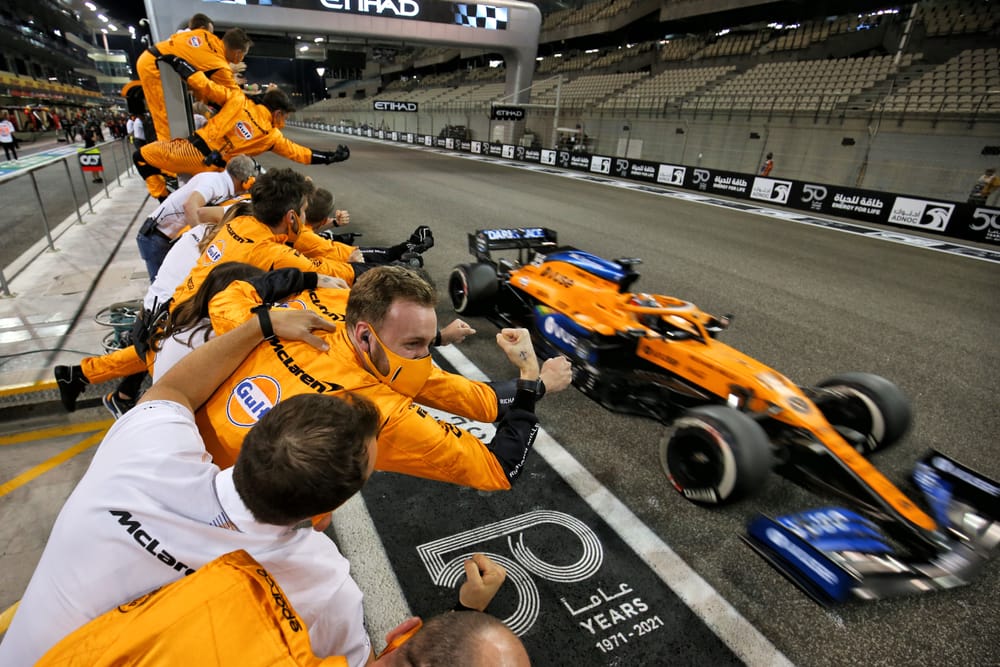Up Next

Amid McLaren's rise to its first Formula 1 constructors' title in 26 years, it's easy to forget that only four years ago it was secretly fighting for survival.
The team's competitive turnaround has been stark enough given it started last season in poor form and was briefly last in the championship. But had things gone differently in 2020, McLaren could easily have slipped into a weak existence consistently focused on survival rather than success, incapable of dragging itself up the grid.
New investment from McLaren Group owner Mumtalakat, Bahrain's sovereign wealth fund, a sale (and lease back) of McLaren's Woking factory, and then finally a crucial significant minority investment from US firm MSP Capital, saved McLaren from a very different fate after the COVID-19 pandemic.
McLaren's recovery from that low point is now arguably complete with its 2024 championship victory, sealed in Abu Dhabi.
There, McLaren Racing CEO Zak Brown reflected on the past precariousness of the team's situation and told select media including The Race: "We were definitely on the brink.
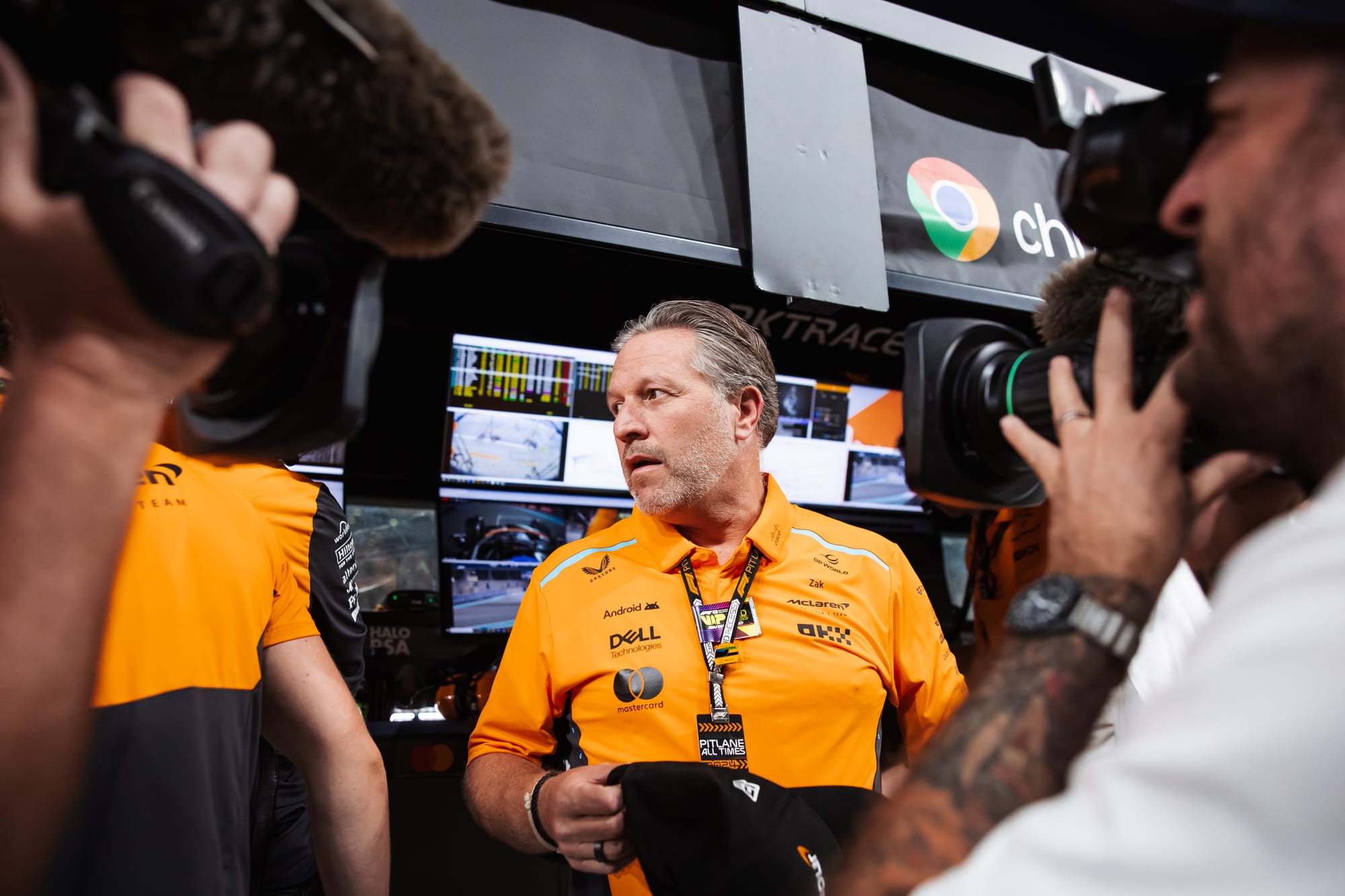
"We were paying all our bills. But we were months away, and not several months, from…we knew we could make it through the year, but we were in a situation that if we didn't have a cash injection, we would have been at risk starting the year [2021].
"I was always confident the shareholders would never let it get there. But it was also clear we needed the investment.
"I could put my head on the pillow at night knowing they [the shareholders] will back us up if they have to. But it was going to be the ninth inning, to use a baseball term, before they brought in the relief pitcher."
A secret fight for survival
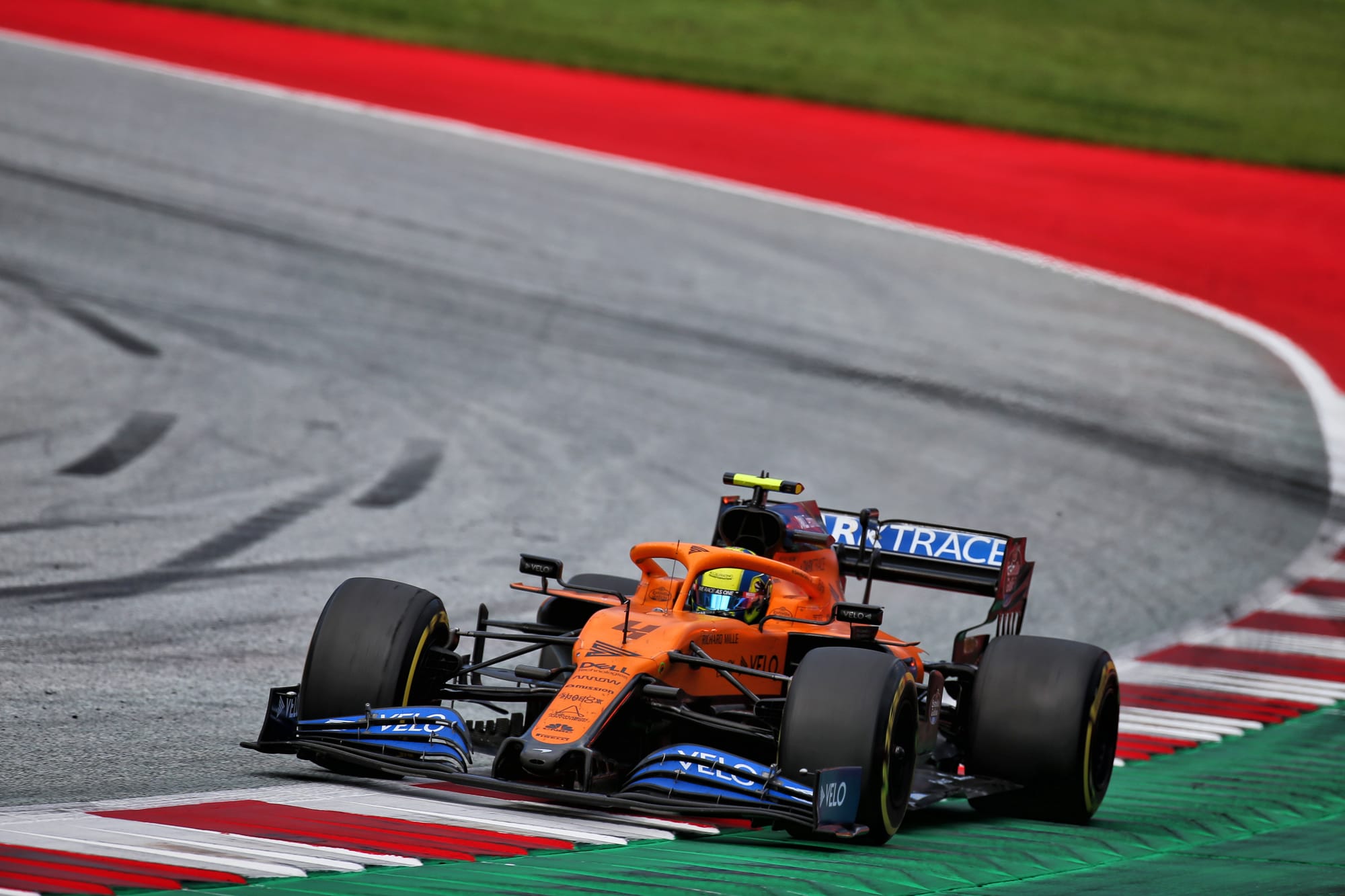
One year after that salvation in 2020, Brown opened up on the full extent of McLaren's existential threat in an exclusive interview with The Race. Below is a modified version of the original piece with Brown's exact quotes at the time, something that's only more interesting with hindsight of the three years since then.
When the McLaren Group was in financial turmoil in 2020, there was talk of potential insolvency for the parent company. The F1 team looked vulnerable to knock-on effects, so there was a high degree of urgency to conclude the eventual sale of a significant minority stake in the McLaren Racing division.
But at the time this was simply stated in the context of securing the necessary investment to continue the progress to the front of the F1 grid. There was never any explicit suggestion the sale represented salvation from immediate or long-term peril.
So reflecting on it one year later, it came as a surprise to hear Brown speak of that process in such blunt terms as: "Ultimately, we were fighting for survival."
That conjures images of fallen F1 giants and struggling minors.
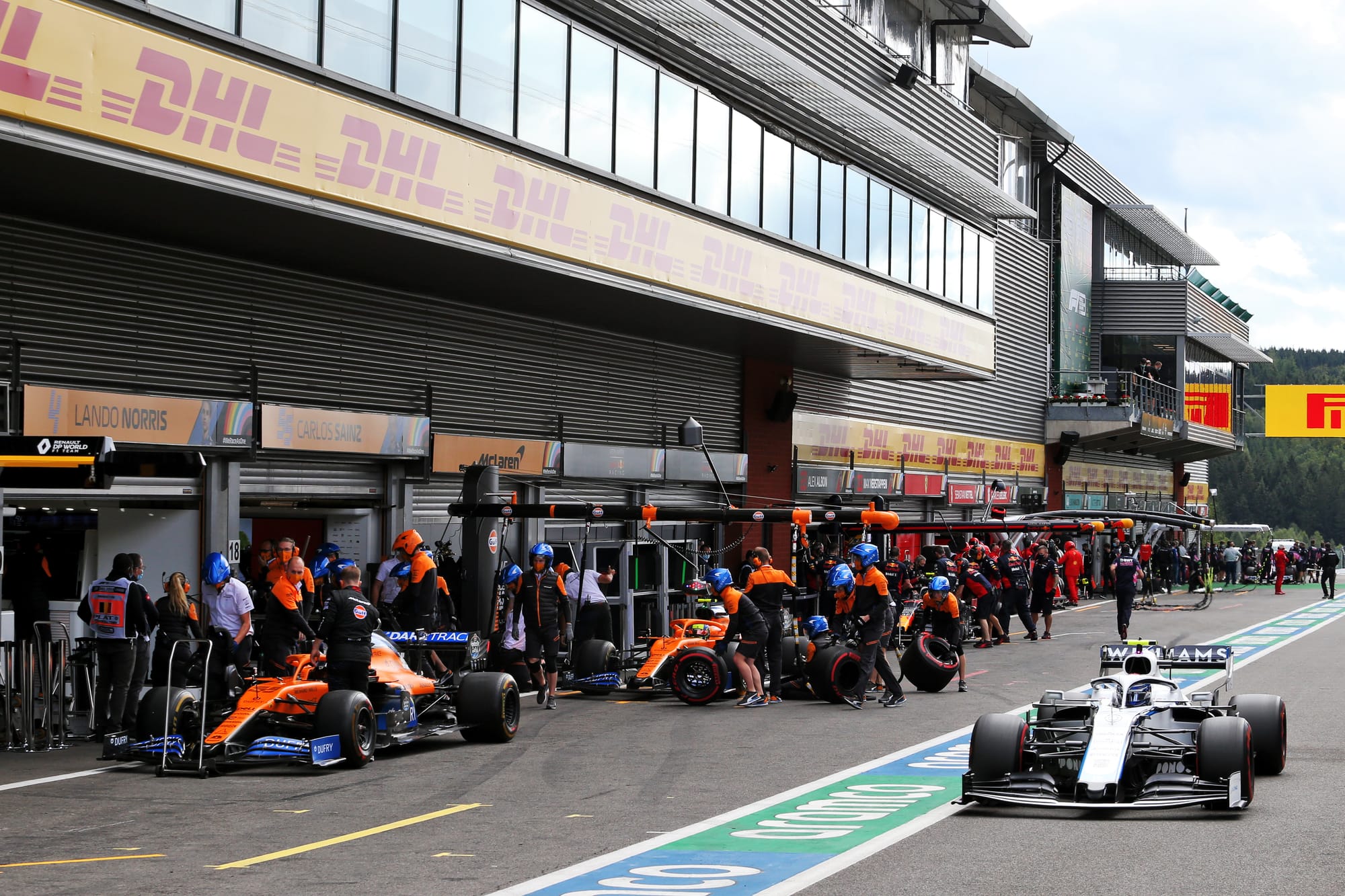
Even before its 2024 title success, it was difficult to think of McLaren, one of F1's oldest, greatest and most popular teams, in the same context as teams that have been swallowed up by such situations - although when you consider Williams went through its own painful decline over a long period, with an even more extreme solution (a complete sale), it seems a little less farfetched.
In December 2020, McLaren Racing agreed to a £185m buy-in from MSP Sports Capital that gave the consortium of US sports investors an initial 15% stake rising to a maximum of 33% by the end of 2022.
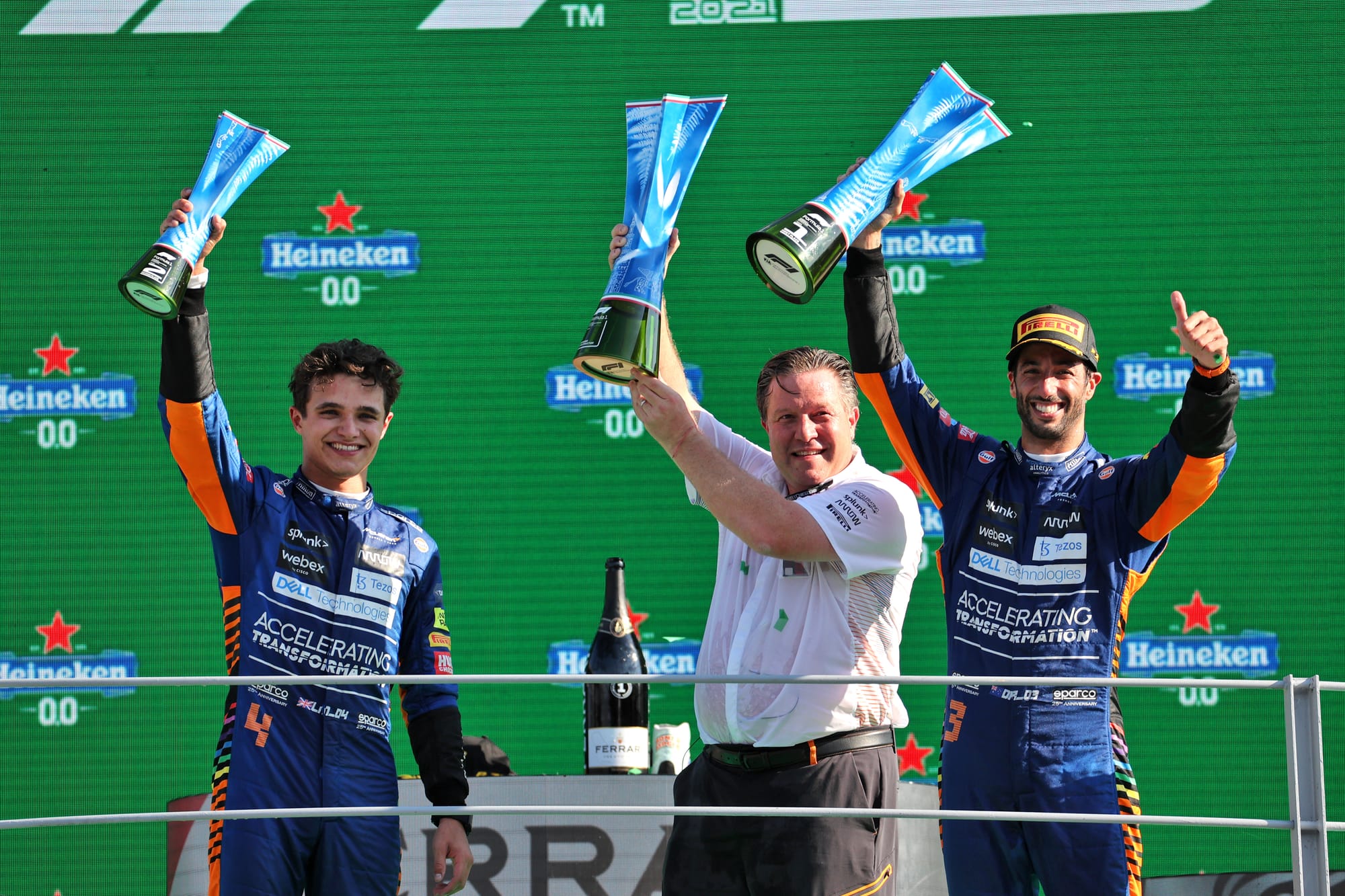
Brown, speaking to The Race near the end of a 2021 season in which McLaren became a grand prix winner again and was only narrowly beaten by Ferrari to third in the championship, considers that deal McLaren's biggest moment during his tenure, which began in 2016.
That was saying something at the time given McLaren had split with Honda, switched to Renault customer engines and then back to Mercedes power all within that period.
Brown had already made some key decisions that only look more important with hindsight like promoting then-McLaren head of race operations Andrea Stella to performance director, and commissioning the construction of the now operational windtunnel that allowed McLaren to pivot away from using Toyota's Cologne facility.
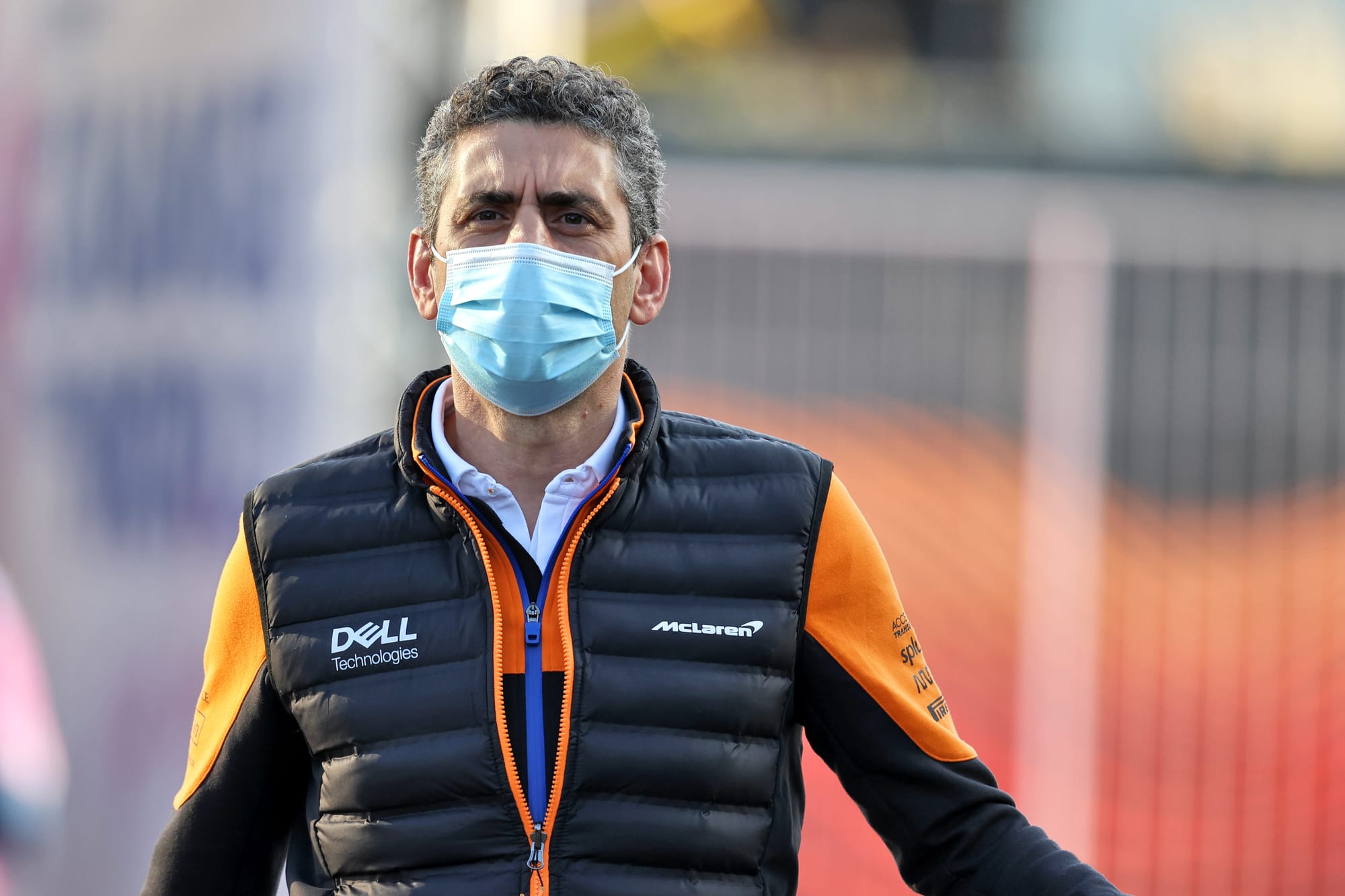
"Without MSP's investment we might not be sitting here," Brown said. "Now we're sitting here extremely healthy, having just bought an IndyCar team, and we started an Extreme E team.
"We're fighting Ferrari, we've got great drivers, we've got a great team, we've got a windtunnel coming.
"I look at where we are 12 months on, it's night and day [difference]."
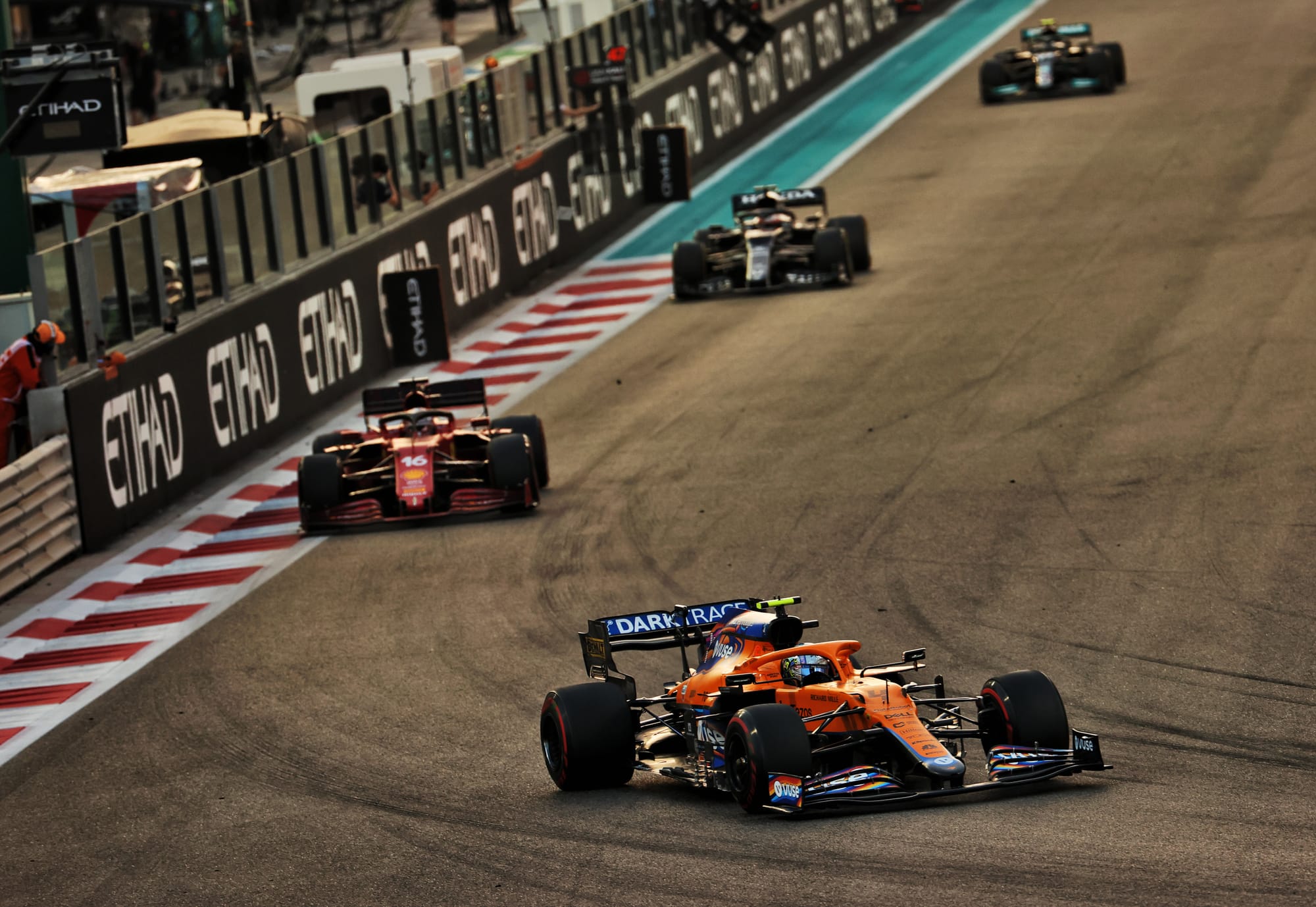
If that feels like an overstatement, it's probably because McLaren did a good job of keeping a lid on the potential consequences of its 2020 strife. So while it was well-known the group was in serious trouble, the fact the team seemed to be performing well on-track had many assuming it may be independent enough to be protected - and that, at worse, things might just get a little tight.
In response to the pandemic there were redundancies in the McLaren Racing division as well as the wider company as part of a massive effort from the McLaren Group to address the growing financial crisis. The company had a major cash influx from majority owner Mumtalakat and secured a $150m loan with Bahrain's national bank to stem the tide.
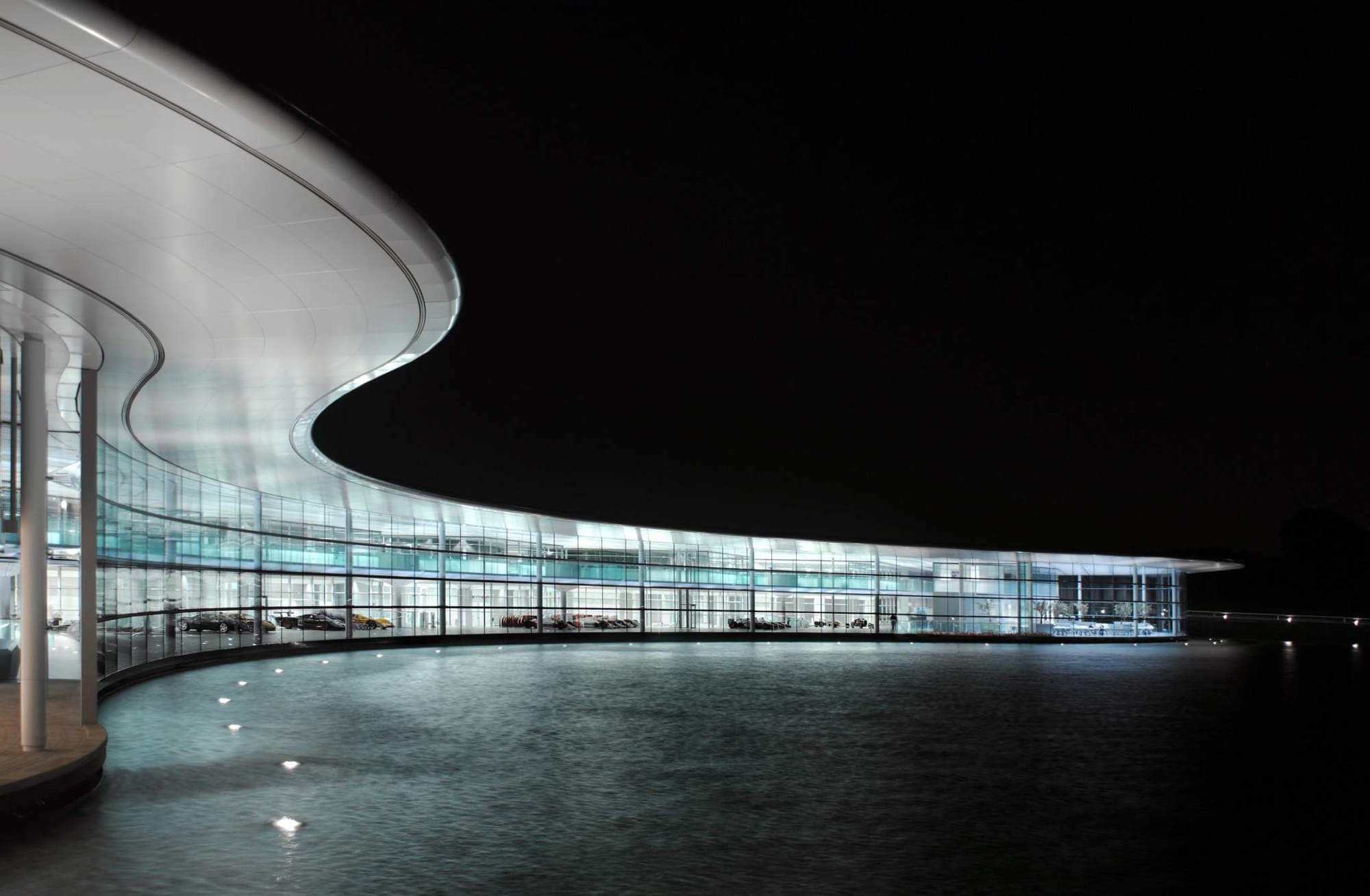
Then came the MSP deal for McLaren Racing and since then, McLaren's iconic Woking headquarters has been sold and leased back on a long-term deal to raise more funds.
But separating the specific problems of the pandemic from a deeper-rooted commercial malaise is almost impossible for those on the outside. For example, the closure of the factory during lockdown meant construction of the windtunnel and simulator paused. But it didn't resume as soon as the F1 team went back to work. That itself was a hint of the wider complications McLaren was suffering from.
So, was McLaren Racing as insulated from the group's issues as appeared to be made out? Or was it more serious?

"It was pretty serious," said Brown. "It was pretty serious. I'm sure we would have found a way through it…but it was pretty serious."
That's why Brown and his management team wanted the extent of McLaren's problems to be on a need-to-know basis at the time.
Media reports about the McLaren Group's plight - which he said were "90% accurate" - made that tougher. As did the fact Brown likes to be "very transparent with the race team", but felt this knowledge would be an unhelpful burden.
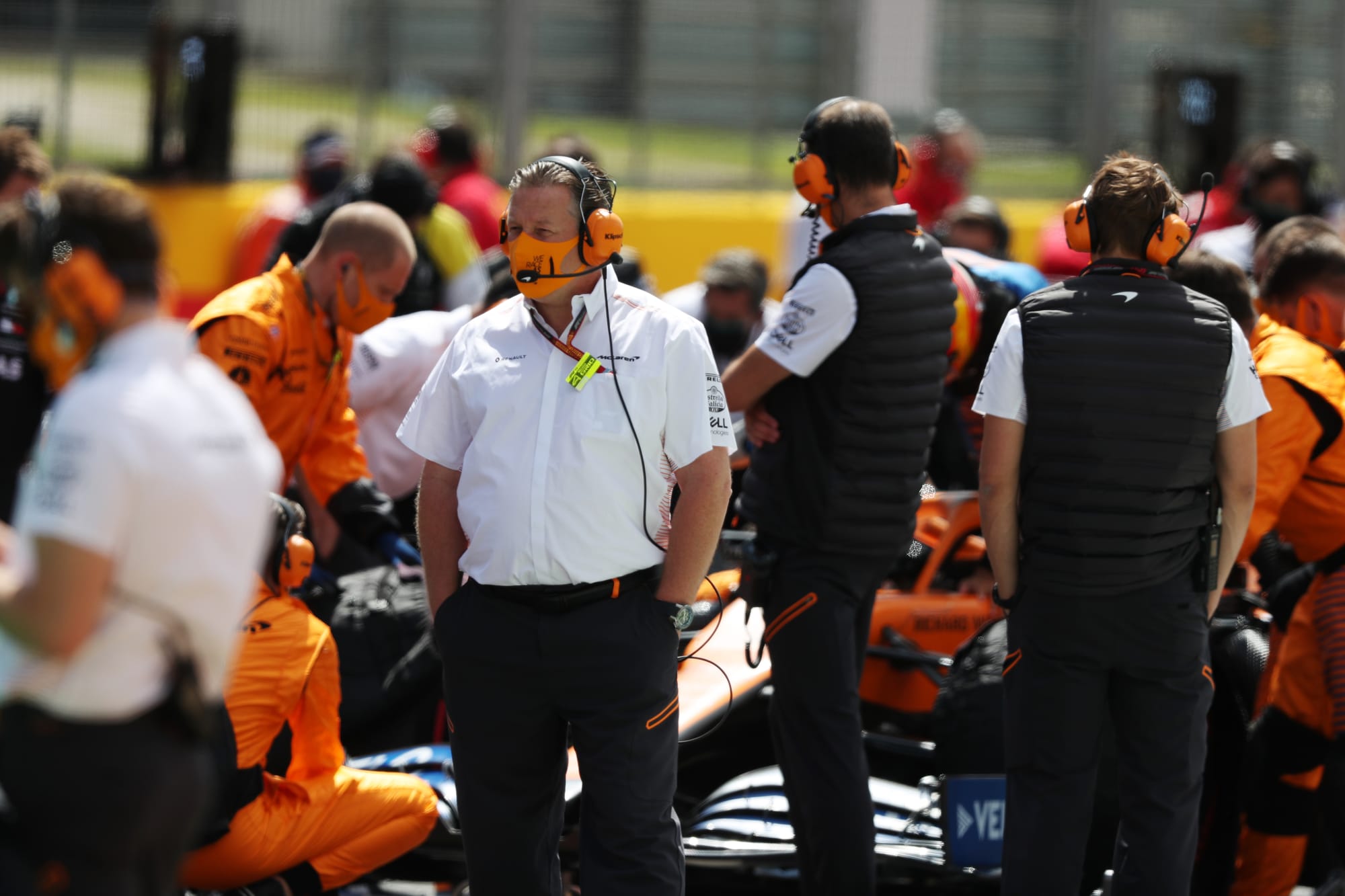
"That was very difficult," he said. "We were in a situation where the race team was performing but I was well aware of the financial challenges we had at a Group level, which rolled down to Racing.
"And I didn't want the racing team to lose its focus and momentum, and be concerned by something that was out of their control.
"So that was a lot of weight on my shoulders and my leadership team's shoulders because they were aware of: 'How do we keep the momentum, enthusiasm, excitement that we got going on, while we know there's a huge storm coming but they can’t do anything about it?'.
"That's our job as a leadership team at times to insulate. And we worry about things they can't worry about.
"Sometimes they worry about things I can't have any influence over, what's going on in the garage - I have total trust that whatever they're worried about, they're on it. And I think they have total trust that whatever myself and my leadership team are worried about, we're on it.
"I'm really pleased with the outcome because now [we] are just very healthy and don't have any worries. [But] we were not in good shape until we brought the investment on from MSP, which is something that I'd worked on for six months."
There would likely have been an alternative solution to MSP had the deal not gone through, whether that be another investor or a bail-out from the Bahrainis after all, which may again imply talk of a 'fight for survival' is a little overblown. But an alternative solution doesn't mean an identical one.
Likely, it was less that McLaren would be fighting hand to mouth that instant, and more that there was a big long-term problem on the horizon: a reduced budget, lower ambitions, less success, a drop in revenue, and a potentially devastating negative cycle.
That's exactly the sort of thing that can lead to hand-to-mouth status. Just look at Williams, or lost giants such as Lotus (pictured below in its penultimate season in 1993) and Brabham.
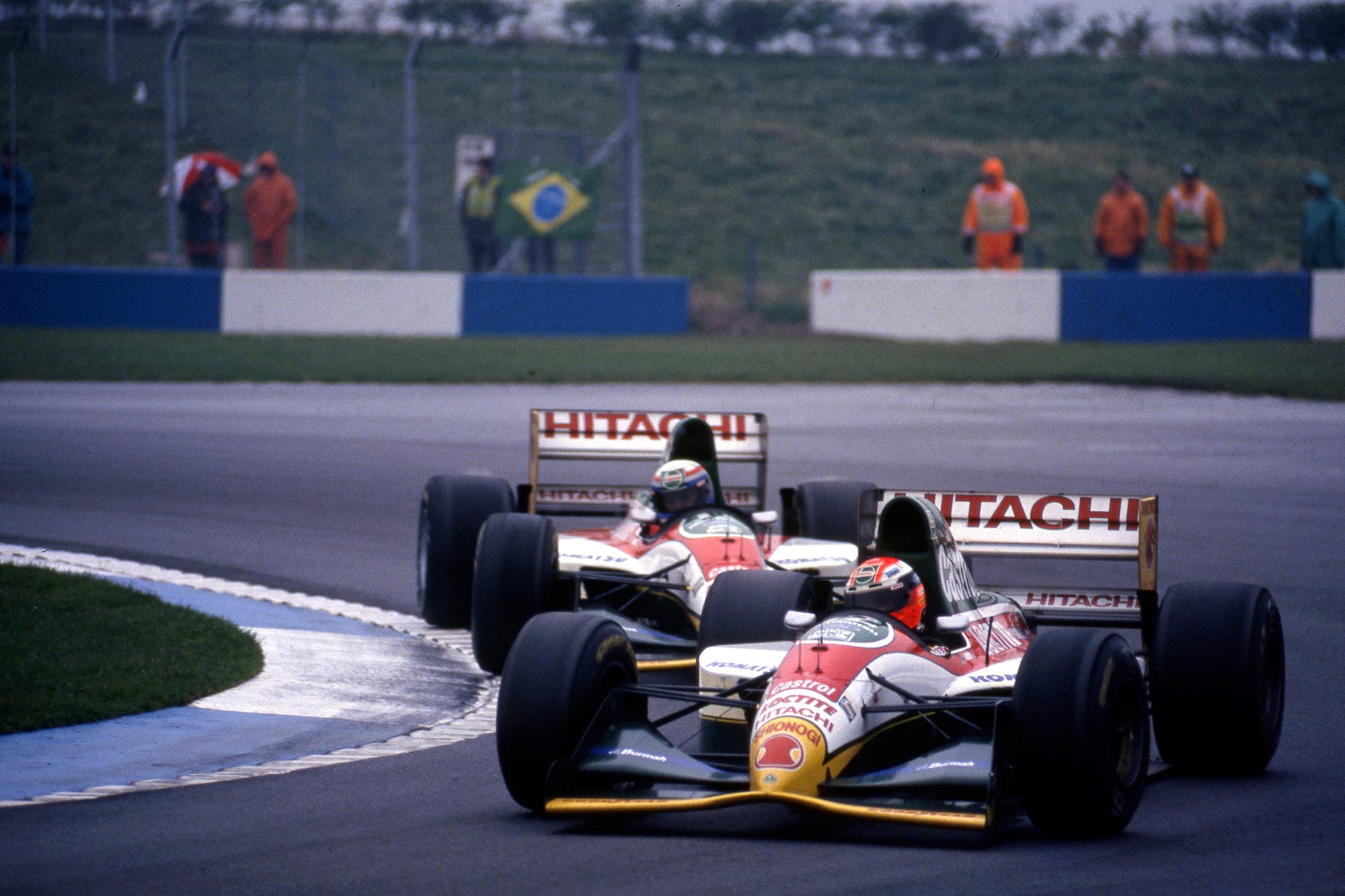
"I sit back, 12 months on, knowing how fragile we were," said Brown. "So even though on track we were doing strong, I knew and my leadership team knew, the shareholders knew what a fragile state we were in.
"Trying to find the balance between full throttle and fighting for survival at the same time without letting the world know, even though the media was reporting about it and it was getting closer and closer and closer, that was a highly stressful time.
"Now that we've gone through it is highly rewarding and highly motivating and has made the team stronger because I think everyone actually kind of knows now, and it’s given everyone a boost of energy that we could survive that.
"What doesn't kill you makes you stronger."
Brown declared: "We’re back to having the level of resources that you came to know McLaren to have.
"We are now fiscally one of the big four [along with Mercedes, Ferrari and Red Bull; not much has changed there has it?]. When I started it drove me crazy, we were talking about the big three, the big three, the big three.
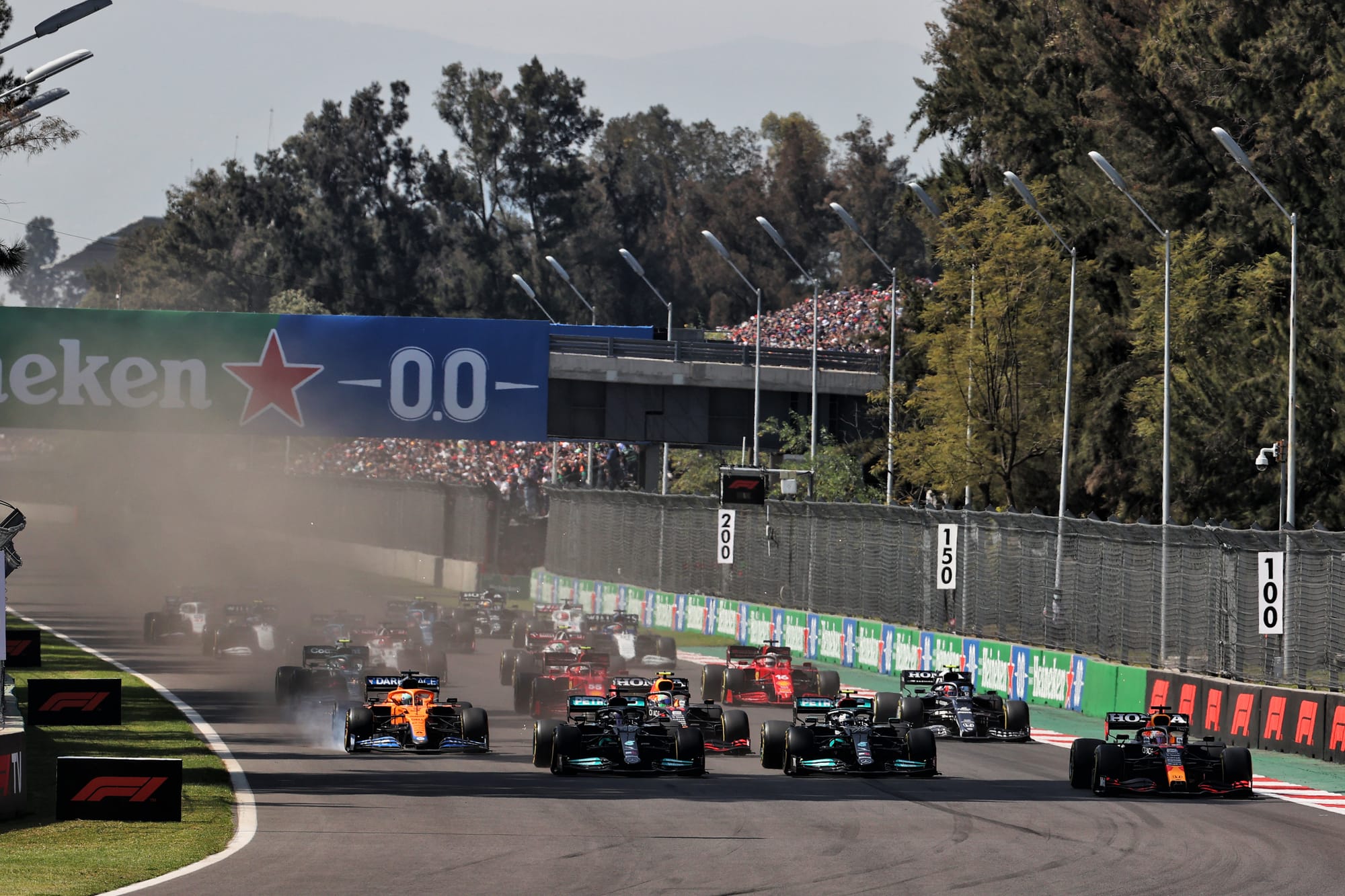
"And it was like, the McLaren I knew growing up was like the big one! Or it was us and Ferrari.
"I can comfortably say, while we have some catching up to do with all of our technologies, there are no resources that the other three don't have."
The Race signed off that Brown feature with...
That sets McLaren up to confidently stride into F1's new era.
The case for the team ending its exile from F1's top table in the next few years is stronger than ever.
The chance of that happening would have been vanishingly thin had a wider financial crisis ended differently - whether its survival was in question or not.
It's fair to say McLaren has well and truly ended its exile from F1's top table and that only makes its forgotten fight for survival all the more critical to the shape of F1's 2020s.


